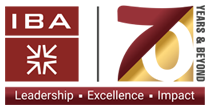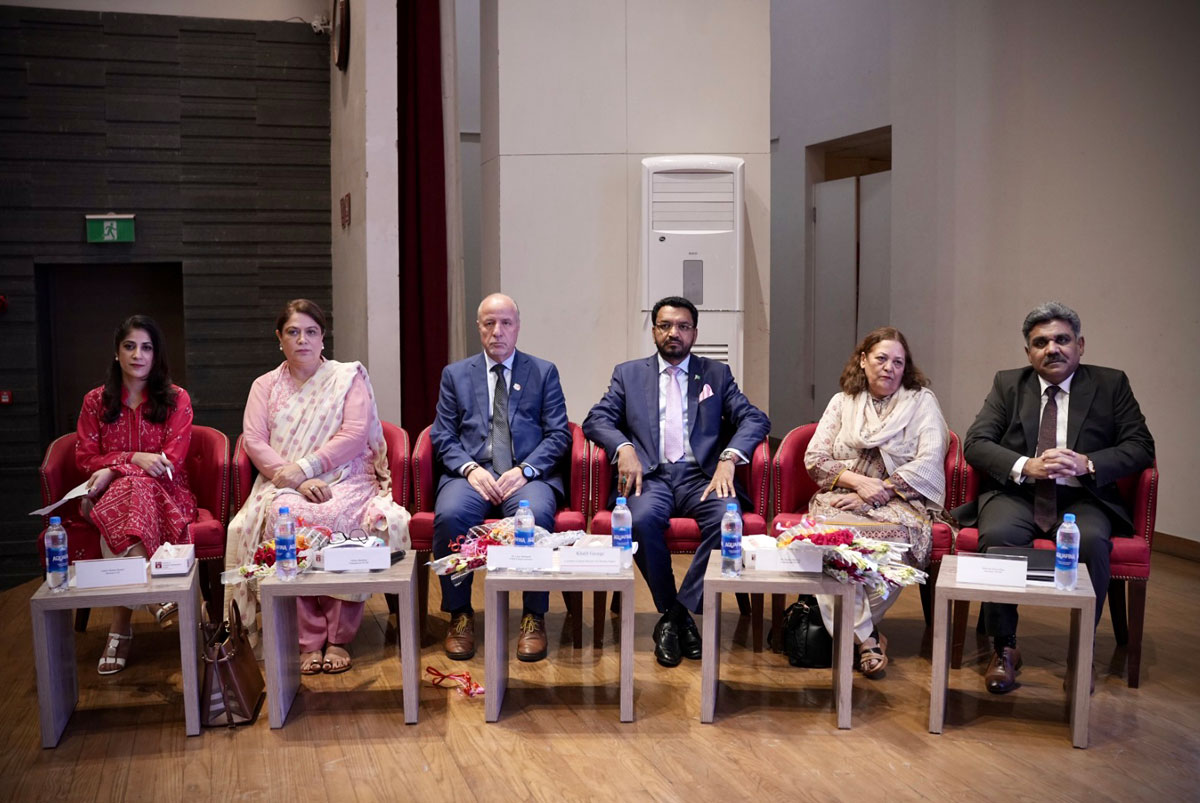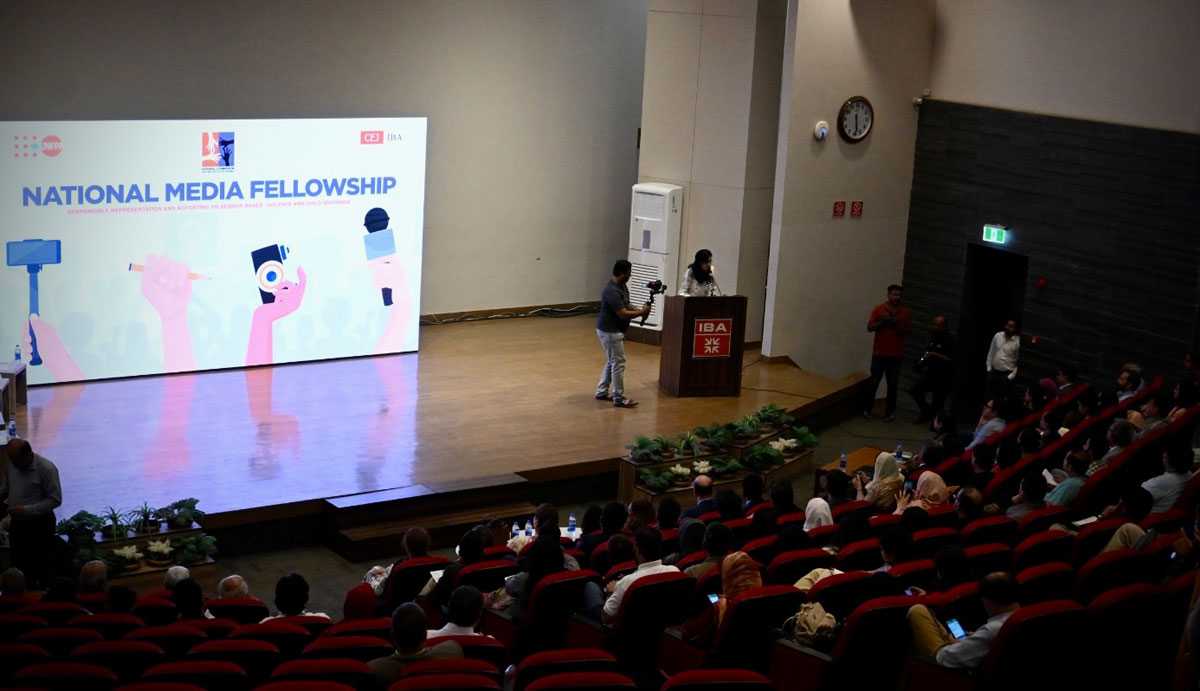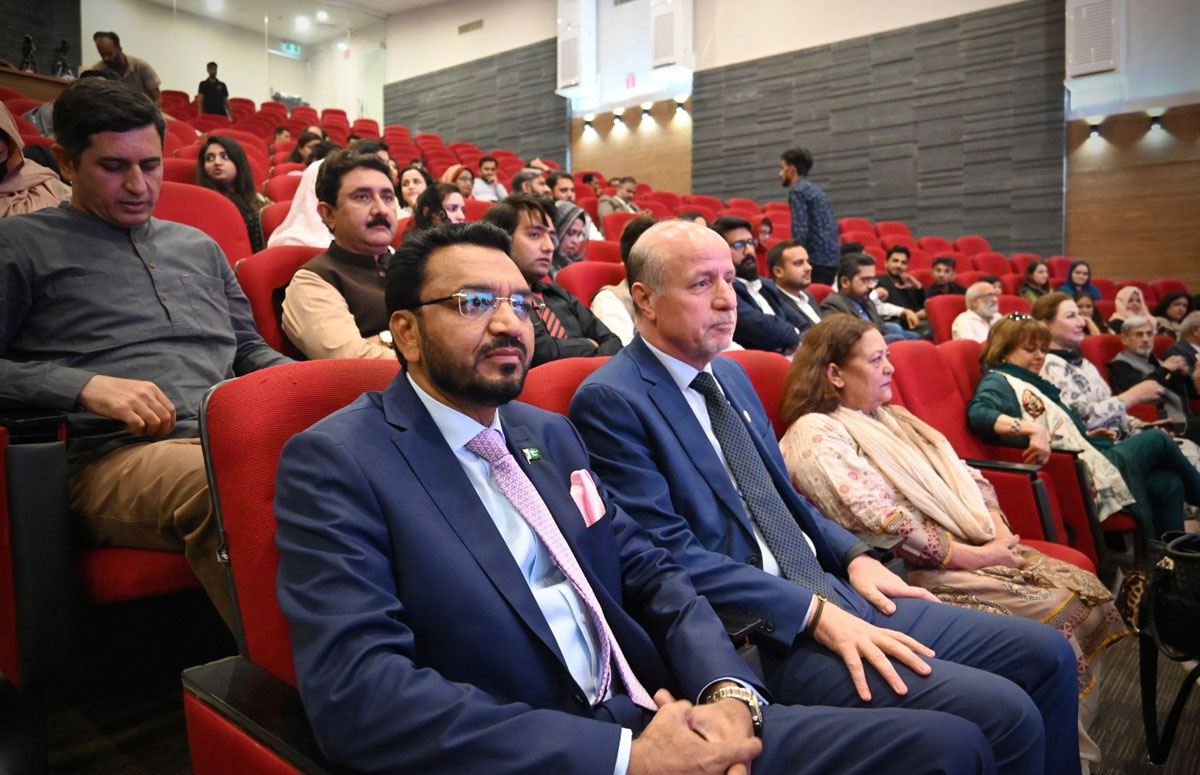IBA Karachi, NCSW and UNFPA launch second National Media Fellowship to counter gender-based violence and child marriages
06 September, 2023: The Centre for Excellence in Journalism (CEJ-IBA) at the Institute of Business Administration, Karachi; the National Commission on the Status of Women (NCSW); and the United Nations Population Fund (UNFPA) collaboratively launched the second National Media Fellowship (NMF). This official launch is an innovative step aimed at addressing and raising awareness about the pressing issues of gender-based violence (GBV) and child marriages in the society. This fellowship is set to make a significant impact on the discourse surrounding these critical issues.
The Caretaker Federal Minister for Human Rights, Mr. Khalil George, attended the launch as the Chief Guest. Mr. George congratulated NCSW-UNFPA and CEJ-IBA for making efforts to curb the violence against women and to create awareness on the issue of child marriage. He further said that the media's role is very crucial and incredible as a watchdog that is carrying sensitive responsibility to portray these issues in our society.
He added, “Journalists are a very important segment in recent societies and particularly for democratic government. By sensitizing and training them on these issues we can create a more respectful and enabling environment for women and girls of Pakistan”.
National Commission on the Status of Women (NCSW) in collaboration with UNFPA and CEJ-IBA initiated a media fellowship in 2022 to sensitize and train journalists to report gender-related issues with a gender lens. In the first cycle of NMF, 37 journalists were trained on the theme, and they produced 162 stories in addition to 2 documentaries related to GBV, child marriages, and the impact of climate on women which were published in leading media houses across the country. The second cycle of the same will train and sensitize 40 journalists across the country.
Ms. Nilofar Bakhtiar, Chairperson, NCSW said that according to a 2022 UNFPA document, 32 percent of women have experienced violence in Pakistan. On the other hand, resources and rehabilitation for women survivors remain scarce.
Child marriage is another deep-rooted issue across Pakistan, especially in rural areas, that takes away a child’s right to a safe and healthy childhood, quality education that can lead to decent economic opportunities and social and political empowerment. Children, especially girls, who marry at a young age are at a higher risk of domestic violence and abuse. Pakistan has nearly 19 million child brides, according to UNICEF. The UN Children's agency estimates that around 4.6 million girls were married before the age of 15 and 18.9 million before they turned 18.
Dr. Luay Shabaneh, Representative, UNFPA Pakistan said, “Gender-based violence, child marriage and other harmful practices are not women’s issues. These are issues of the society at large as the roots of these practices lie in intrinsic belief systems and social norms which move societies to take action. UNFPA has joined hands for this media fellowship to use the power of journalism to normalize the conversation about gender-based violence and family planning at the community level so the social barriers can be addressed”.
Ms. Amber Rahim Shamsi, Director, CEJ-IBA said that the fellowship is a remarkable opportunity to learn and unlearn, delve deep into the systems and structures underpinning GBV, polish digital and data journalism skills, and produce impactful stories as documentaries, multi-media reports, and investigative pieces. For years, the CEJ has trained thousands of journalists. But this fellowship is special – it is not a workshop, it is a catalyst for change, so the media can drive conversations beyond hashtags such as #Justicefor Rizwana, Fatima, Zainab, and Noor.
About CEJ-IBA
The CEJ-IBA stands as the nation's most prestigious journalism training facility that has been instrumental in elevating the standards of journalism in Pakistan.
About NCSW
The core work of the NCSW is central to the principles of gender equality and empowerment as enshrined in the Constitution. It not only grants equality to women but also empowers the States to adopt measures of positive discrimination in favor of girls and women.
About UNFPA
UNFPA is the United Nations sexual and reproductive health agency. It promotes gender equality and empowers women, girls, and young people to take control of their bodies and their futures.



